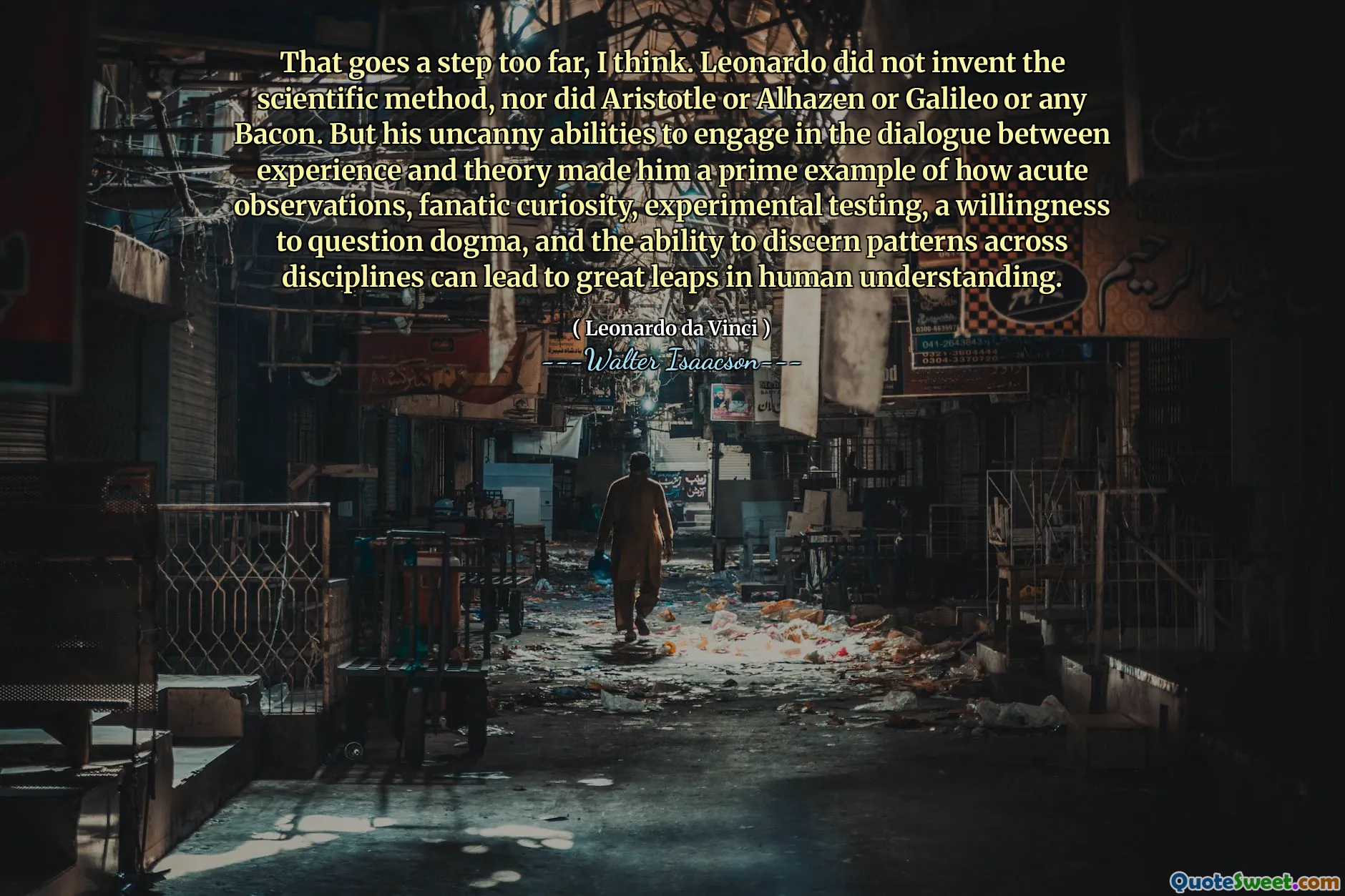
That goes a step too far, I think. Leonardo did not invent the scientific method, nor did Aristotle or Alhazen or Galileo or any Bacon. But his uncanny abilities to engage in the dialogue between experience and theory made him a prime example of how acute observations, fanatic curiosity, experimental testing, a willingness to question dogma, and the ability to discern patterns across disciplines can lead to great leaps in human understanding.
Leonardo da Vinci exemplifies the spirit of scientific inquiry—not necessarily through formal invention of the scientific method, but through an intuitive mastery of its principles. His approach underscores the importance of curiosity, meticulous observation, and interdisciplinary thinking. In today's context, this quote emphasizes that groundbreaking discoveries often stem from a mindset that refuses to accept dogma at face value. Instead, it champions the importance of questioning established beliefs, engaging in experimentation, and synthesizing knowledge across different fields. Leonardo's dialogue between experience (empirical observation) and theory (conceptual understanding) serves as a blueprint for modern scientific exploration. It reminds us that innovation doesn't always come from new inventions but can emerge from a keen eye and a curious mind that connects disparate insights. As we advance further into multidisciplinary sciences, embracing this holistic approach—marked by curiosity, skepticism, and pattern recognition—is vital for pushing the boundaries of human knowledge. This quote also encourages humility; recognizing that great thinkers like Leonardo were not solely inventors but also agents of inquiry that contribute to the larger collective quest to understand our world. Ultimately, it celebrates the enduring power of curiosity and fearless questioning in stimulating human progress, encouraging both scientists and non-scientists alike to adopt a mindset of wonder and relentless pursuit of knowledge.





